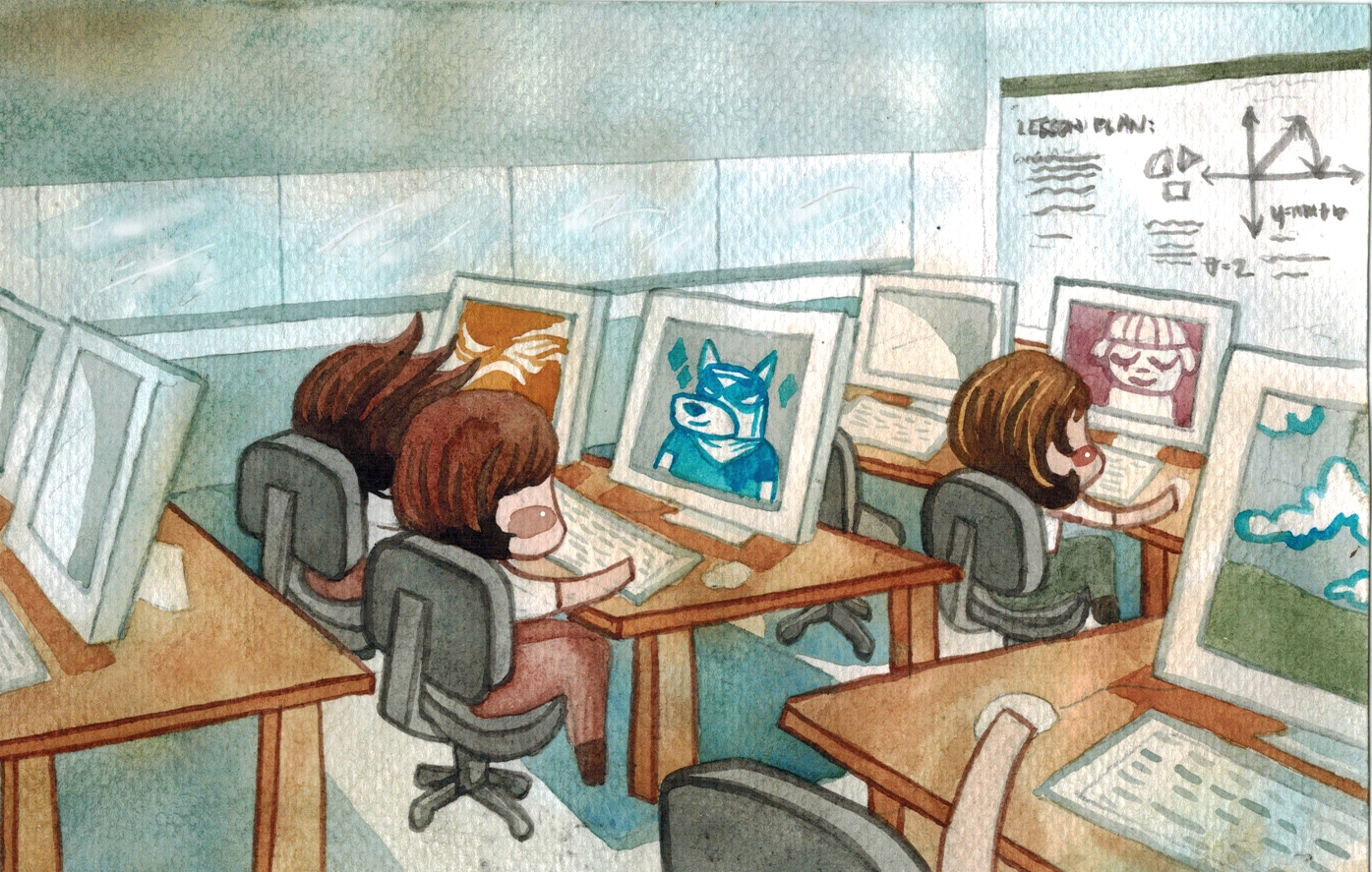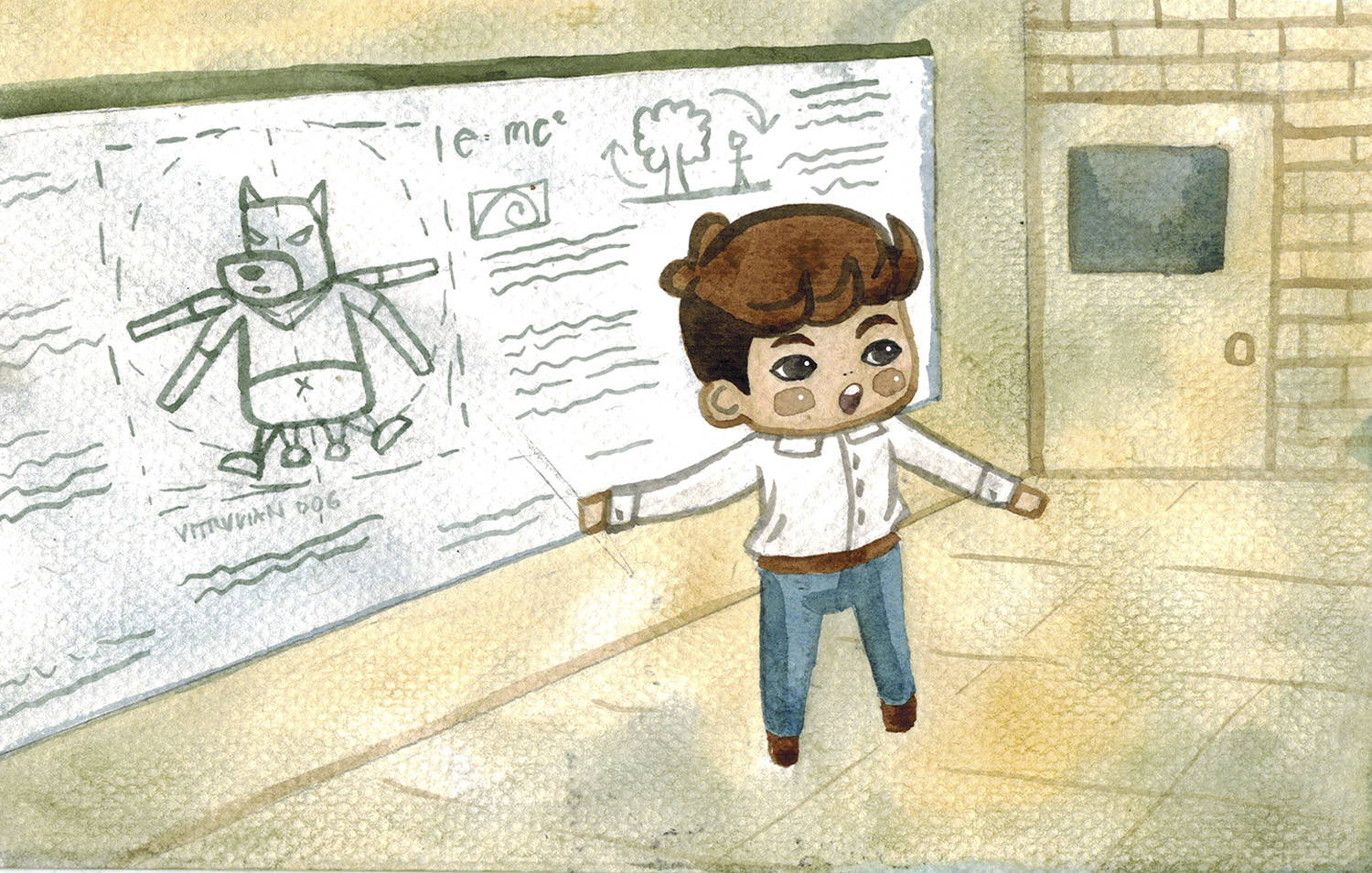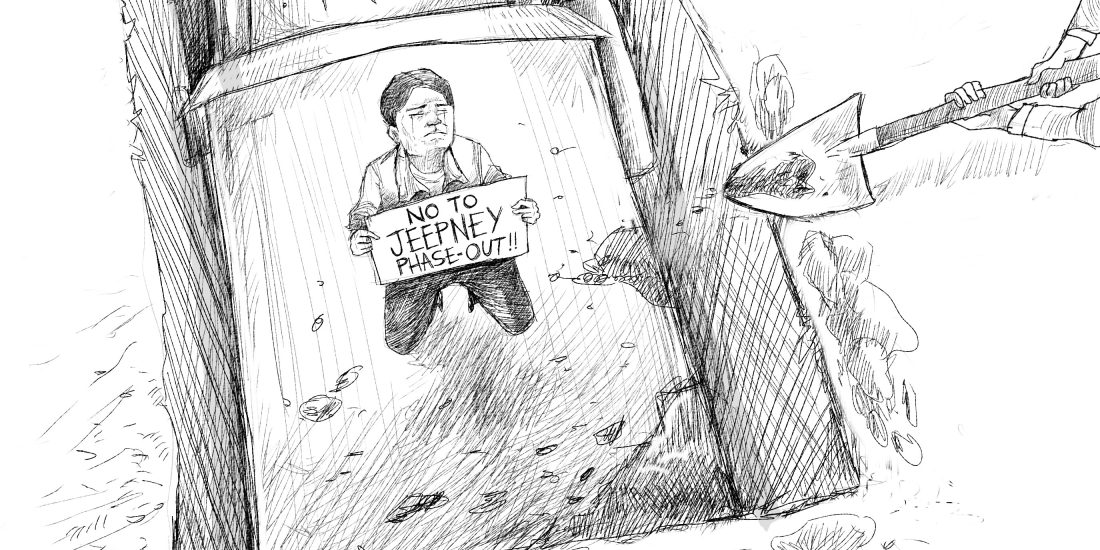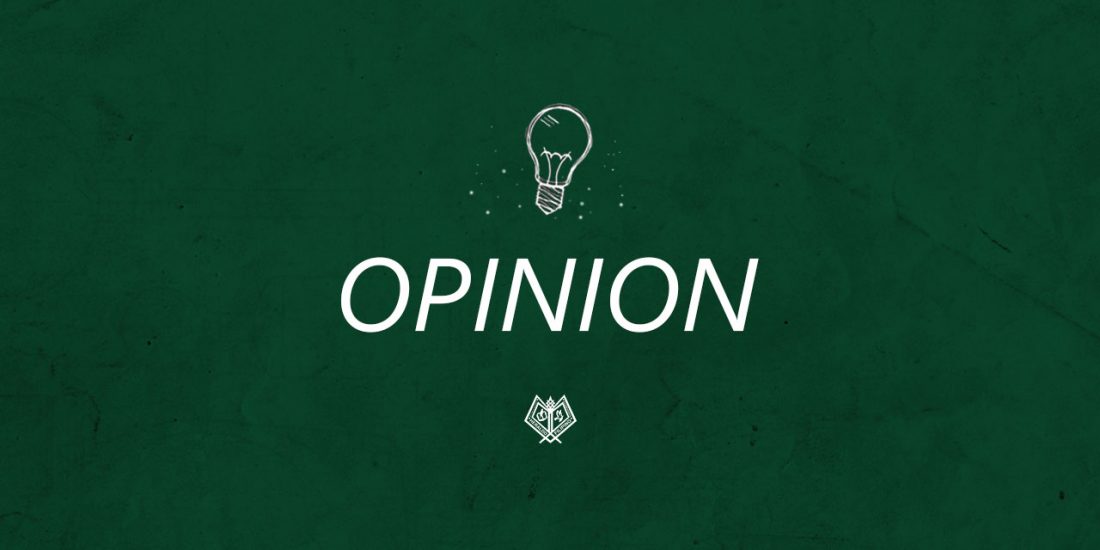Mirror of the future
Education has been revolutionized, and as much as we want it to build a strong foundation for the future generation, its drastic changes aren’t necessarily for the better.
Early years in school treated us like babies clutching onto our mother’s arms, trying to convince us that memorization and standardized exams were the main course of learning. Now, as we’ve had a taste of college culture, self-study lessons, idle professors, and tougher exams gradually tear away at our thirst for learning—leading us to a more vulnerable state of our own beings.
Before we can figure out a way to revive our enthusiasm toward learning, we ought to analyze the glitches in our own University’s educational approach, and its changes along the modernization of education.

Window of advancement
Blackboards, chalk, and typewriters—these old-school fixtures used in the University’s heyday eventually evolved into glass boards, televisions, projectors, and e-classes, with the aim to maintain healthy academic relationships among professors and students. Trying to keep up in the race with other technologically advanced universities, online education is now a part of Lasallian education, and a great contributor of the success—or failure—of Lasallian millennials
Nowadays, online researching sweeps libraries under the rug, as students opt for a more efficient and faster way of learning. Though knowledge in the past requires more patience and consumes an entire day, an educational institution sticking with the old methods and refusing to change their ways might find it hard to produce “independent, self-regulated learners who are able to take control of their own learning,” according to a study titled Are digital natives a myth or reality?: Students’ use of technologies for learning from Glasgow Caledonian University. A digitalized era continues to offer new trends, and we can all fall behind at our own risk if we stick to the status quo.
Although technology makes everything happen at a snap of a finger, its downside is still being denied by its proponents. In an article by the National Communication Association, it says that online learning teaches students to work and think on their own; however, this is a problem as others “lack the motivation to learn independently.” Simply put, we’ve all got that friend who’s failing a class for forgetting to check their schoolbook account and missing imperative quizzes and assessments, leading to avoidable failures.
Although we can commend the resourcefulness of modernized education, we enrolled in the University to be mentored by professors, not by Schoolbook.

Doors for the average
Beyond Schoolbook, college is also a series of weekly quizzes and countless readings. Our learning system is conforming to standardized exams based on the belief in the myth of average: students’ knowledge should be shaped in the same uniform manner instead of honing their individual potential.
The reality is, each one of us has certain skills and talents that need to be nurtured, which the educational system tends to neglect. As we all know, not everything we learn from memorizing and answering exams designed for thousands in the four corners of a classroom will be applicable to each individual in real life compared to hands-on application, experience, and individual reaction.
Average students are commonly mocked with the “grades-define-intelligence” phenomenon, as our education system opts to measure and hone one’s intelligence through academic excellence instead of individual creativity. Peter Tait firmly stated in his opinion article on The Telegraph that “measuring intelligence is an inadequate guide to human capability.” Though standards are being maintained inside the classroom, Ken Robinson stated in his 2006 TEDxTalk that as we continue to “devalue the skills brilliant people were good at, the more they think that they are not as good as they think they are.” Many students are skilled and capable, but since we use grades to define intellectual existence, it hinders students to outgrow the boundaries set by oppressive institutional numbers.
In a world where education and intelligence is measured by standardized tests, average students manage to raise their own flags despite criticisms and judgments. Their struggles somehow teach us to still nourish our own capacities, and not rely on the myth of the average.

Foundation of intellect
With the coming of modernization, one thing that has an undeniable role in shaping our learning experience is the mentors who teach us firsthand—the professors. Some of us live in horror under the strictness of pedagogues who believe that fear will mold us to be stronger and more outstanding students. But the existence of genuine and ingenious professors encourages us in learning engagement, and keeps us alive even in the most sleep-inducing lectures.
In a study by Paul Umbach and Matthew Wawrzynski about the role of faculty in student learning, they suggest “students report higher levels of engagement and learning at institutions where faculty members engage students in experience and challenge students academically.” Beyond the medium and measurement of educational attainment, the one thing that will always remain the strongest factor in our college lives are our mentors, no matter how impactful or ineffectual they are.
To quote N.J. Entwistle in his study Approaches to Learning and Perceptions of the Learning Environment, “changing one component—like study skills advice—can have little effect, if teaching and assessment remains unchanged.” With all the resources and technology at our disposal, our mentors can expand their horizons in teaching and cope with the necessary approach our generation needs.
The truth is, the moment we step in the battlefield of reality, we won’t remember our training grounds, but instead, we will remember those who trained us, and how they changed our lives.
***
Although the University is seeking out ways to innovate our education, we’ve still got a long way to go. Perhaps changes are inevitable, and to say that these changes are perfection is close to impossibility, but it has a compelling impact on the revival of our enthusiasm for knowledge, and salvation of the passion for learning that we somehow lost along the way.
Art by John Chesleigh Nofiel




